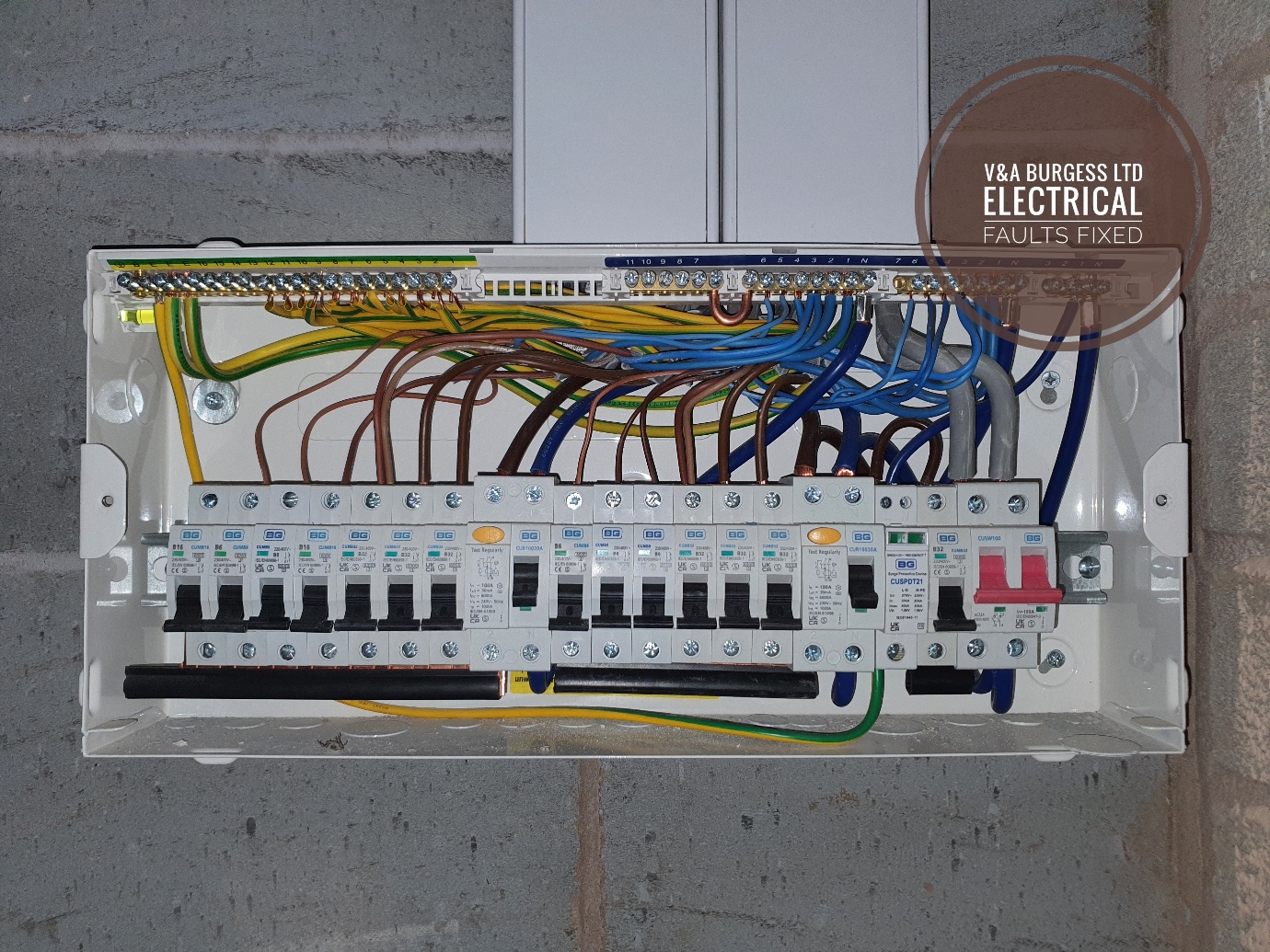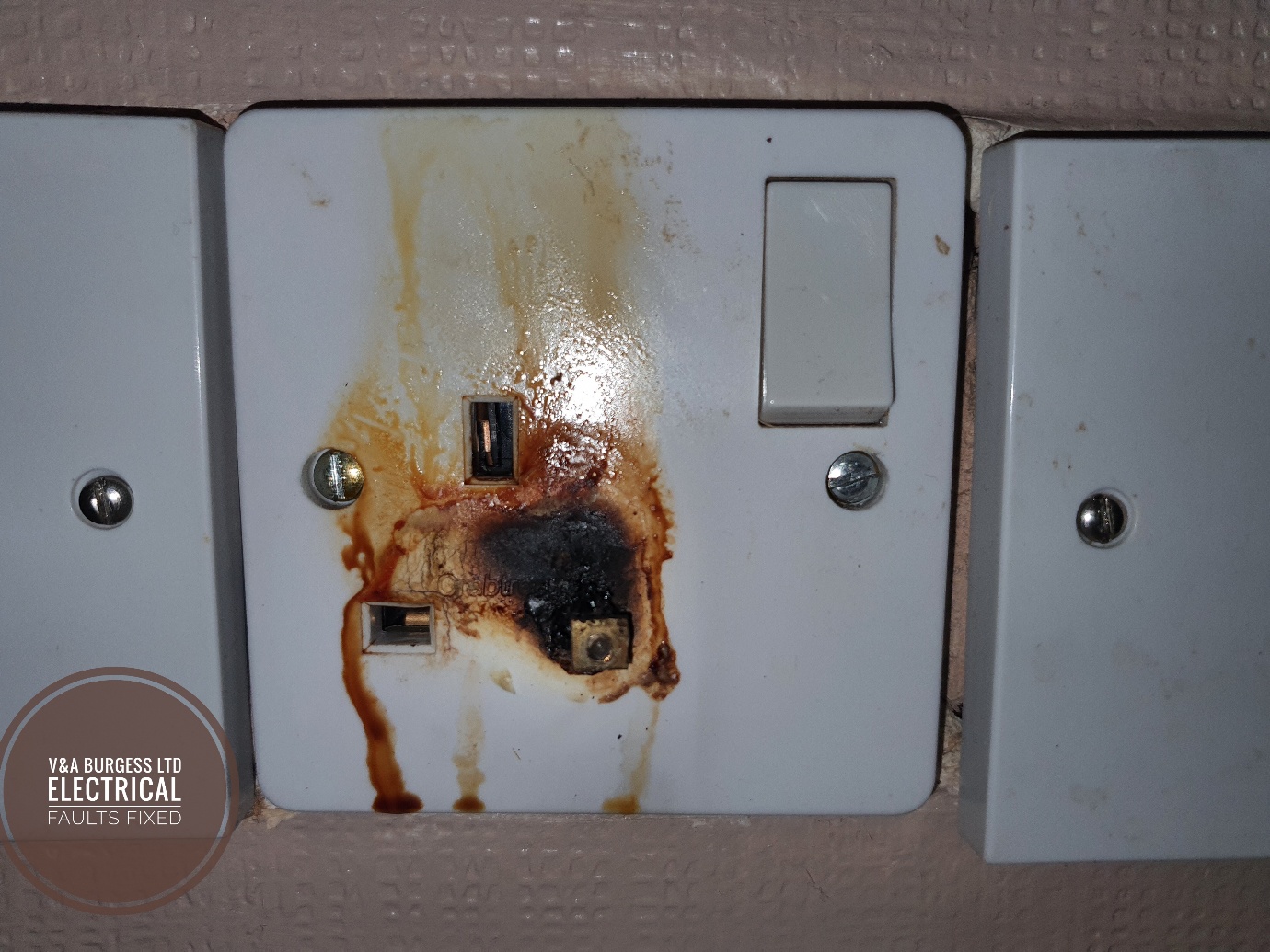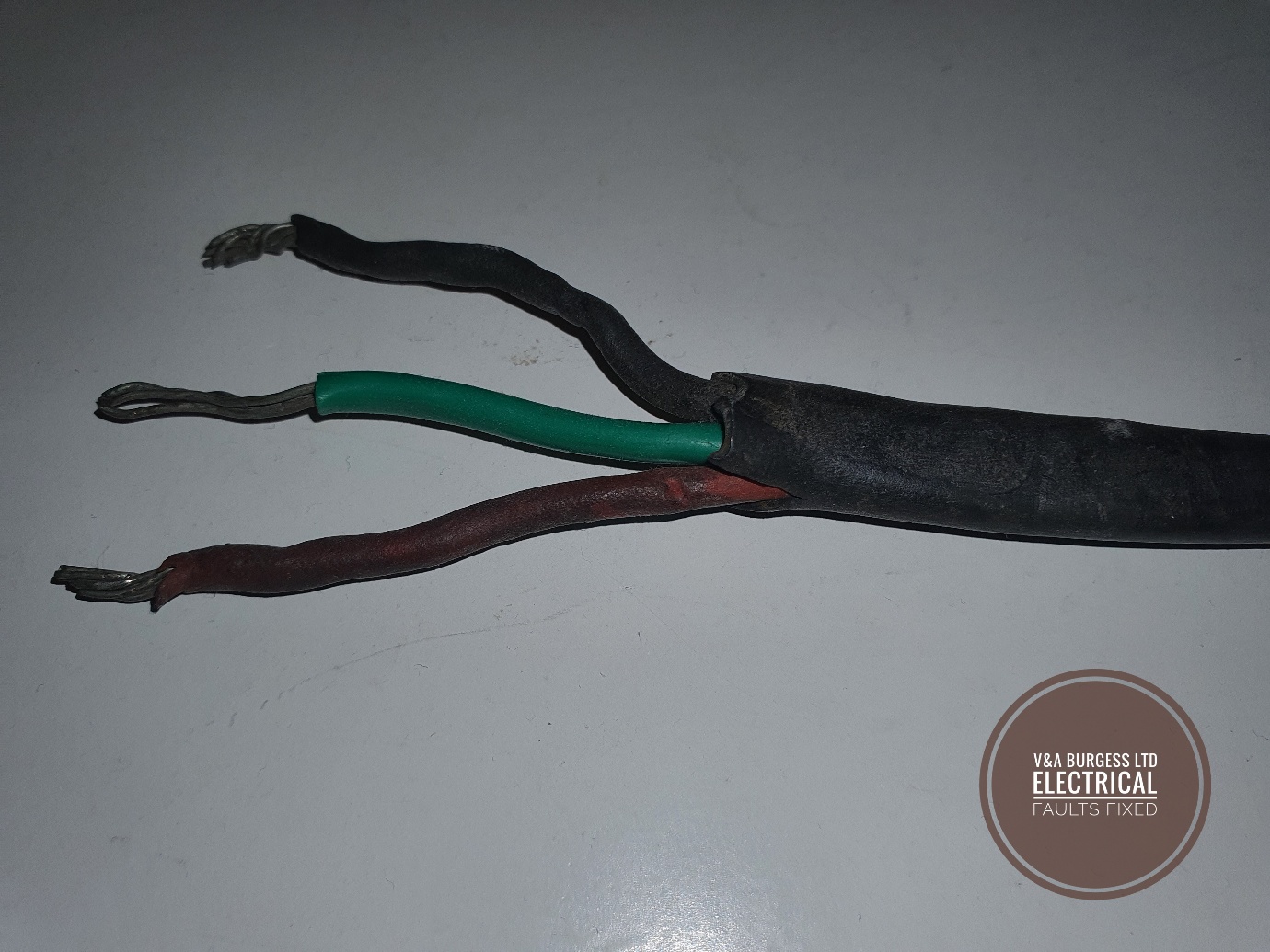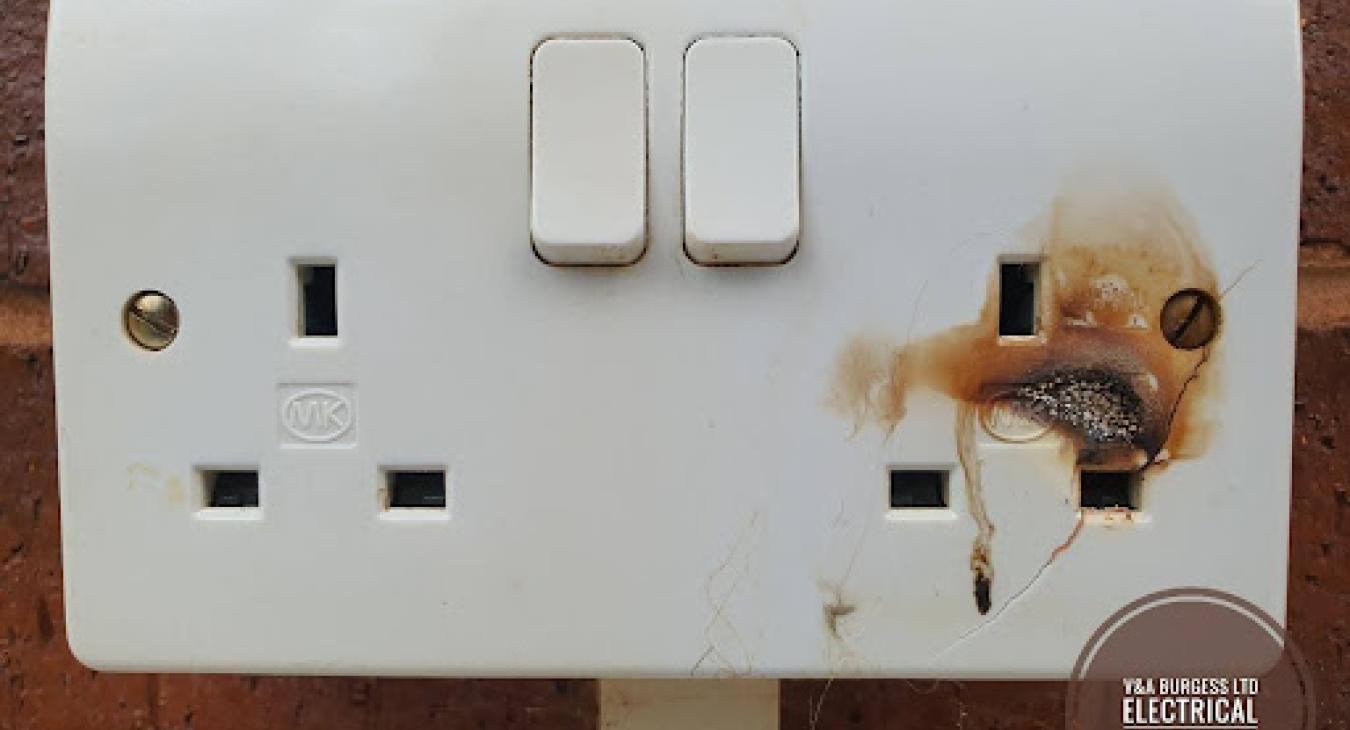Electrical Emergency? Here's what to do...
Table of Contents
- Burning Smell coming From Outlets or Electrical Panels
- Frequent Circuit Breaker Trips or Blown Fuses
- Buzzing or Sizzling Sounds from Outlets or Switches
- Discoloured or Scorched Outlets and Switches
- Visible Sparks when Plugging in Appliances
- Flickering or dimming Lights
- Hot Outlets, Switches or Electrical Goods
- Water Damage near Electrical Installations
- Electric Shocks when Touching Metal
- Outdated Wiring Systems (Rubber Sheathed or Aluminum Wiring)
- Rodent Damage to Visible Wiring
- Intermittent Power Cuts
- Summary
You know you need an Electrician immediately if you have any of the following issues:
- Burning smell coming from outlets or electrical panels
- Frequent circuit breaker trips or blown fuses
- Buzzing or sizzling sounds from outlets or switches
- Discolored or scorched outlets and switches
- Visible sparks when plugging in appliances
- Flickering or dimming lights
- Hot outlets, switches, or electrical panels
- Water damage near electrical installations
- Electric shocks when touching metal
- Outdated wiring systems (rubber sheathed or aluminum wiring)
- Rodent damage to visible wiring
- Intermittent Power Cuts
This list is not exhaustive and if you have concerns over the condition of your electrical system then call a professional electrician immediately to ask for assistance. Electrical repairs can be very dangerous and only a qualified electrician is able to carry out work safely and in accordance with the wiring regulations. Let's have a look at the list of issues in more detail and explore why each one could be potentially dangerous.
Back to top1) Burning Smell coming From Outlets or Electrical Panels
The Electrical Panel in your home is also known as the fuse box, distribution board, consumer unit or breaker box. Regardless of the name you know it by, if there is a burning smell coming from this box then you need to call an electrician immediately. Stop using electrical equipment in your home and if possible and safe to do so then turn the electrical panel OFF completely.

Similarly, if the socket outlets in your home have a burning smell coming from them then stop using them immediately! Locate the electrical circuit switch for the socket outlets at your panel or fuse box and turn them off. A burning smell from an outlet will mean a new outlet and possible wiring repairs, continuing to use the outlets is a serious safety hazard and puts you at risk of electrical fire!
Back to top2) Frequent Circuit Breaker Trips or Blown Fuses
When an RCD, GFCI or circuit breaker trips or a fuse blows regularly it is NOT normally an indication that the circuit breaker or fuses are faulty. Circuit breakers and fuses are designed to blow when dangerous situations occur such as a short circuit or earth fault. House fires can occur if you continually reset a tripped breaker or replace blown fuses WITHOUT an electrical inspection or fault finding carried out by a licensed electrician.
Back to top3) Buzzing or Sizzling Sounds from Outlets or Switches
Buzzing noises are generally not great when it comes to electrical systems. Whilst some discreet buzzing can indicate that a transformer is working correctly, generally electrical buzzing is one of the warning signs that something is not right. An overloaded circuit, loose connections and faulty equipment are all possible triggers for buzzing sounds to start but the list does not stop there. Our article on buzzing switches goes into more detail.
Back to top4) Discoloured or Scorched Outlets and Switches

In older homes that have not been rewired or had outlets replaced, electrical outlets can yellow slightly over time. Whilst this is not an immediate emergency it does indicate the age of the electrical accessories (light switches, socket etc). If, however, the electrical outlets are scorched, brown, blackened, melted or clearly showing signs of electrical damage then they absolutely MUST be replaced!
Many of you will simply choose not to use the outlet again and this is NOT safe either. Bear in mind, outlets that are this damaged will already represent a danger and there is a wiring issue to consider as well. Socket outlets and other electrical components will likely have wiring damage behind them compromising the integrity of the circuit and its safety.
Back to top5) Visible Sparks when Plugging in Appliances
When plugging electrical devices in to the wall, and in particular, high powered appliances, you may see a spark. This can be normal as there is an electrical load waiting for power. If this happens regularly then you will need to contact an electrician to check for electrical problems such as faulty wiring or damaged outlets. Your home's electrical wiring does need some maintenance occasionally and will not simply carry on forever without some TLC.
Back to top6) Flickering or dimming Lights
One indicator of major problems with your home electrical system is flickering lights (insert hyperlink). Whilst flickering lights can be an isolated incident such as a faulty switch or light fitting, it can also indicate that there may be electrical malfunctions occurring nearer to the start of the circuit. Flickering lights can be an early indication that there are issues with the electrical panel or consumer unit so have it checked out quickly for your peace of mind.
Back to top7) Hot Outlets, Switches or Electrical Goods
When electrical current passes through cabling and into appliances, heat is generated. Whilst some heat is normal and perfectly acceptable as part of normal system operation, excessive heat is an indication that a serious problem is present. High resistances caused by faulty wiring, loose connections, loose wiring and undersized cables can cause excessive heat to build up causing hot outlets and equipment. Faulty appliances will not always cause frequent breaker trips, in fact, they may not trip a breaker at all. Not all electrical faults will be dealt with by your electrical panel or consumer unit especially if it is outdated.
Excessive heat is a potential fire hazard so have any hot outlets or equipment checked out quickly by an emergency electrician to ensure your safety.
Back to top8) Water Damage near Electrical Installations
Water and electricity do not mix safely and water ingress into wiring or electrical systems can wreak havoc and introduce potential hazards such as electric shock and fire risks. The home's electrical system is not tough enough to withstand water ingress or serious adverse conditions and should you find that water has affected your electrics it’s best to have an inspection carried out by a professional electrician following any trauma to your system.
Water can drop the resistance between Line, Neutral, Load and Earthing and cause earth faults. The result? GFCI outlets (Ground Fault Circuit Interrupter), RCD (Residual Current Devices) devices and other earth fault protection will begin to trip causing power outages and inconvenience. Whilst it is possible to continually reset these devices, they will eventually fail leaving you without electric shock protection.
Back to top9) Electric Shocks when Touching Metal
The last thing you expect is electric shocks from electrical equipment and metal components such as pipework around your home. If you are receiving electric shocks from taps and other equipment then an electrician needs to investigate immediately. Even if these appear to be small shocks or minor electrical issues, they will almost certainly worsen over time and create a serious safety issue.
Back to top10) Outdated Wiring Systems (Rubber Sheathed or Aluminum Wiring)

Whilst modern PVC wiring will last many decades before requiring replacing, older wiring types such as rubber and aluminum are now likely to be past their best or downright dangerous. In North America, Knob and Tube wiring should now be replaced and over in the UK, Rubber wiring along with aluminum wiring should also be replaced.
Rubber wiring can become brittle with age causing the rubber insulation to simply fall off the wires if it is touched. Aluminum wiring in the UK was used for only a few years during a copper shortage and is potentially dangerous due to its properties. Aluminum crushes under compression such as when tightened into circuit breaker, socket and switch terminals. This results in fractures within the aluminum and connections that are never tight enough.
Back to top11) Rodent Damage to Visible Wiring
Rodents absolutely love PVC cables nibbling at them whenever they get the chance. This leads to faulty electrical systems with no known cause until an electrician investigates with some test equipment and experience. The rodents nibble the insulation off the outer sheath of the cables and the single insulation from the copper wiring causing short circuits, insulation resistance faults and fire hazards. There is also a strong possibility of dead rodents due to electric shock, yikes!
Back to top12) Intermittent Power Cuts
An intermittent power cut (insert link) is not always an indicator of a serious electrical issue, however, should intermittent power cuts become a common problem they need to be checked out as soon as possible by a qualified electrician. Intermittent power cuts can be a symptom of serious electrical issues at the mains or within the panel or consumer unit.
Back to top13) Summary
Whilst it may be tempting to tackle electrical repairs yourself, ignore warning signs or hope that problems will resolve themselves, it’s important to think about electrical safety first. Electrical wires are buried within all parts of your home and it is not always possible to know their condition, see faulty connections or realise the risk of electrical shocks. This article highlights 11 signs that you will need to call an electrician and to be honest, there are potentially many more times when an electrician will be necessary. Leaving electrical issues without having them checked professionally can lead to very costly repairs, electrical hazards and can also reduce the lifespan of your home's wiring.
Back to top
